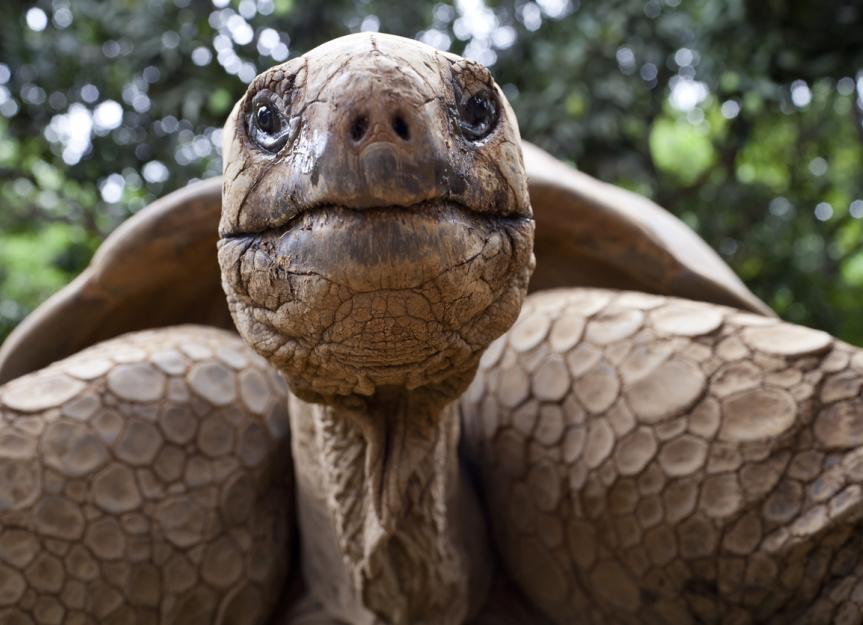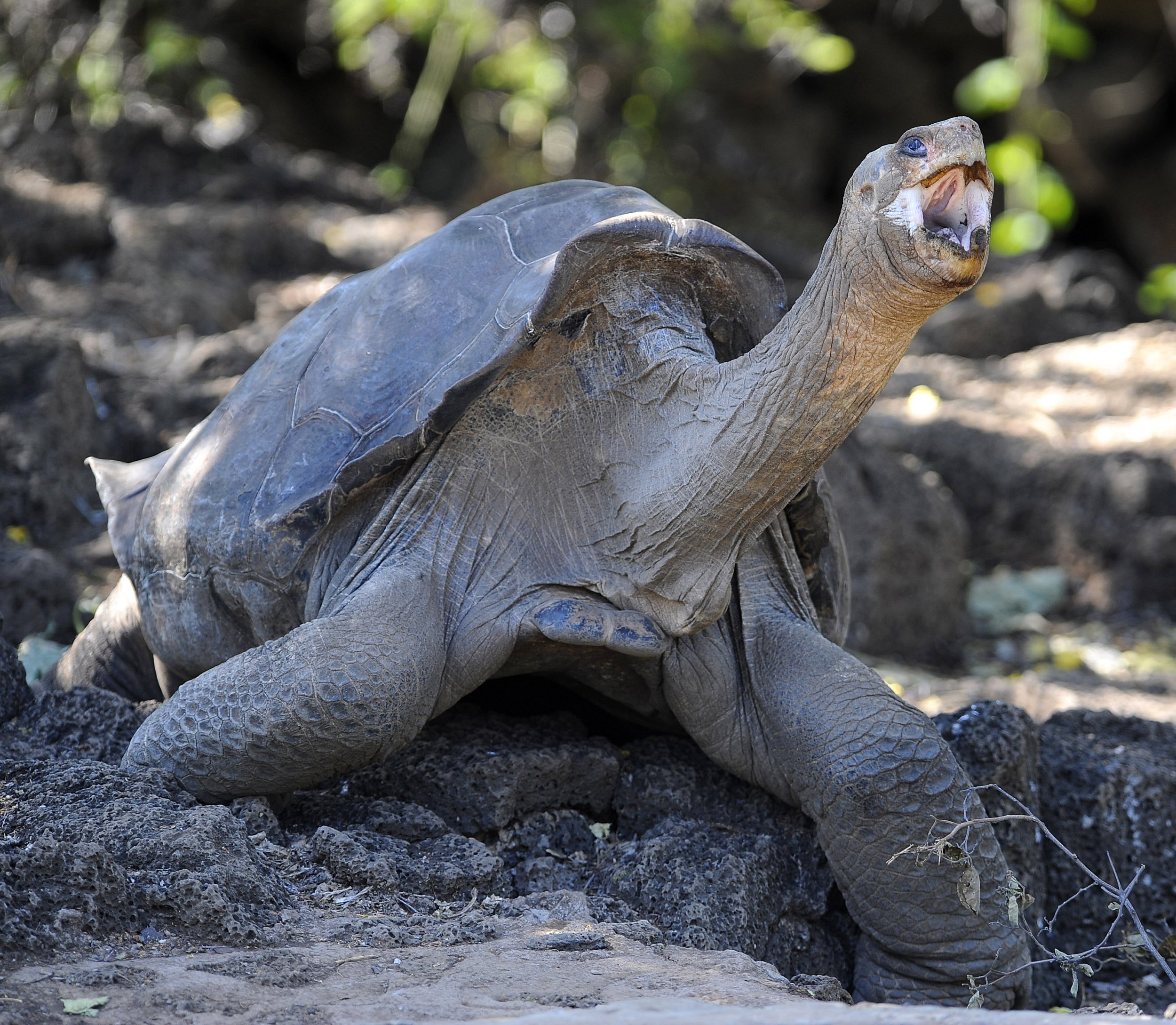Tortoises typically live for a long time, with an average lifespan ranging from 50 to 100 years. These reptiles are known for their slow pace and longevity, making them fascinating creatures to study and care for.
With proper nutrition, habitat, and veterinary care, tortoises can thrive and continue to live well into old age. Their slow metabolism and ability to adapt to various environments contribute to their impressive lifespan. Understanding the factors that influence tortoise longevity can help ensure their well-being and enhance our appreciation for these remarkable creatures.
Whether as pets or in the wild, tortoises are a testament to the wonders of nature and the importance of conservation efforts.
Tortoises: An Introduction
Discover the impressive lifespan of tortoises, with some species living up to 150 years. These resilient creatures offer a fascinating insight into longevity in the animal kingdom.
Tortoises are one of the most fascinating creatures on earth. They belong to the family of Testudinidae and are known for their longevity. These slow-moving reptiles have been around for millions of years, and they have evolved into several different species, each with its unique characteristics. In this article, we will delve deeper into the world of tortoises and explore their species diversity, habitat, and lifestyle.
Species Diversity
Tortoises are found in different parts of the world, and they come in various shapes and sizes. There are more than 50 species of tortoises, and each of them has its unique features. Some of the most common species of tortoises include:
- Greek Tortoise
- African Spurred Tortoise
- Sulcata Tortoise
- Red-Footed Tortoise
- Galapagos Tortoise
Each species of tortoise has its unique characteristics, such as shell size and shape, diet, and habitat. Some tortoises have a lifespan of over 100 years, while others can live up to 150 years.
Habitat And Lifestyle
Tortoises are mainly found in tropical and subtropical regions of the world. They are adapted to living in different habitats such as deserts, grasslands, and forests. Most tortoises are herbivores and feed on a variety of plants such as grasses, fruits, and vegetables. They have a slow metabolism, and they can survive for several months without food or water. Tortoises are solitary animals and prefer to live alone. They spend most of their time basking in the sun or digging burrows to escape from the heat. They are also known for their slow movements, and they can travel up to 0.2 miles per hour. In conclusion, tortoises are fascinating creatures with a long lifespan. They come in different shapes and sizes, and each species has its unique characteristics. Understanding their habitat and lifestyle can help us appreciate these amazing animals even more.

Credit: www.jacksonvillezoo.org
The Longevity Of Tortoises
Record Holders
Tortoises are known for their incredible longevity, with some individuals living for astonishingly long periods. The record for the oldest tortoise is held by Jonathan, a Seychelles giant tortoise, who lived to be 187 years old. Another notable example is Tu’i Malila, a radiated tortoise from Madagascar, who was reputedly given to the Tongan royal family in 1777 and lived until the astounding age of 188.
Average Lifespan Across Species
Across different species of tortoises, the average lifespan can vary significantly. Some species, such as the Galapagos tortoise, are known for their exceptional longevity, with individuals often surpassing 100 years. On the other hand, smaller species like the Russian tortoise have an average lifespan of around 50 years. It’s important to note that the lifespan of a tortoise can be influenced by various factors including habitat, diet, and proper care provided by their owners.
Factors Influencing Lifespan
Factors influencing the lifespan of tortoises are multifaceted and can vary based on a range of genetic, environmental, and dietary factors. Understanding these influences is crucial for providing optimal care and ensuring the longevity of these remarkable creatures.
Genetics
The genetic makeup of a tortoise plays a significant role in determining its lifespan. Inherited traits can impact susceptibility to certain health conditions and overall longevity.
Environmental Conditions
The environment in which a tortoise lives can profoundly affect its lifespan. Factors such as temperature, humidity, and exposure to predators all play a pivotal role in determining the longevity of these creatures.
Diet And Nutrition
The diet and nutrition of a tortoise are critical factors in determining its lifespan. Adequate access to fresh water, a balanced diet rich in fiber, and appropriate vitamin and mineral supplementation are all essential for ensuring a healthy and prolonged life.
The Impact Of Human Activity
Human activity has a significant impact on the lifespan of tortoises. The destruction of their natural habitats and the lack of conservation efforts have led to a decrease in their population and overall lifespan. Let’s explore the specific ways in which human activity has affected tortoises.
Habitat Destruction
The destruction of tortoises’ habitats is a major factor contributing to their declining lifespan. Deforestation, urbanization, and industrialization have resulted in the loss of crucial feeding and nesting grounds for these creatures. With their habitats being destroyed, tortoises are left vulnerable to predators and face challenges in finding adequate food and shelter.
Moreover, the destruction of habitats often leads to the fragmentation of tortoise populations. This means that individual tortoises become isolated from one another, reducing their chances of finding suitable mates and reproducing. As a result, their overall population declines, and their lifespan is significantly affected.
Conservation Efforts
In recent years, there has been an increased focus on conservation efforts to protect and preserve tortoises and their habitats. These efforts aim to mitigate the negative impact of human activity and ensure the long-term survival of these magnificent creatures.
Conservation organizations and governmental bodies have implemented various strategies to protect tortoise habitats. These include creating protected areas, establishing breeding programs, and promoting awareness about the importance of conserving these species. By safeguarding their natural habitats and actively working towards their preservation, we can positively impact the lifespan of tortoises.
Furthermore, education plays a vital role in conservation efforts. By educating local communities and raising awareness about the value of tortoises, we can encourage responsible and sustainable practices that benefit both the tortoises and the ecosystems they inhabit.
In conclusion, human activity has had a significant impact on the lifespan of tortoises. The destruction of their habitats and the lack of conservation efforts have resulted in a decline in their population and overall lifespan. However, with increased awareness and dedicated conservation efforts, we can strive to protect and preserve these incredible creatures for generations to come.
Caring For A Tortoise
When it comes to caring for a tortoise, it’s important to understand the specific needs of these fascinating reptiles. Selecting the right species, ensuring a proper diet, and creating the ideal environment are essential for the well-being and longevity of your tortoise.
Selecting A Species
Before bringing a tortoise into your home, it’s crucial to research and select a species that aligns with your lifestyle and available space. Different species have varying care requirements, such as temperature preferences and dietary needs.
Dietary Needs
A balanced diet is vital for the health of your tortoise. Leafy greens, hay, and occasional fruits are important components of their diet. It’s also essential to provide calcium supplements to support their bone health.
Environment Setup
Creating a suitable environment for your tortoise involves providing a spacious enclosure, heat source, and UVB lighting. A substrate that allows for digging and burrowing is also crucial for their well-being.

Credit: www.petmd.com
Health Challenges And Solutions
Tortoises, like all living creatures, face health challenges throughout their lives. Understanding the common illnesses, veterinary care, and preventative measures is crucial to ensuring the well-being and longevity of these fascinating reptiles.
Common Illnesses
- Respiratory infections
- Shell rot
- Metabolic bone disease
- Parasitic infections
Veterinary Care
- Regular check-ups
- Diagnostic tests
- Medication administration
- Surgical interventions
Preventative Measures
| Preventative Measure | Description |
|---|---|
| Proper Diet | Ensure a balanced diet rich in nutrients. |
| Hydration | Provide access to clean water at all times. |
| Environmental Conditions | Maintain appropriate temperature and humidity levels. |
| Hygiene | Keep the habitat clean and free of parasites. |
Tortoises In Captivity Vs. The Wild
Tortoises in captivity generally live longer than those in the wild, with some species reaching over 100 years in a well-maintained environment. In the wild, factors like predators, food scarcity, and habitat conditions can significantly impact their lifespan. It’s important to provide proper care to captive tortoises to ensure a longer and healthier life.
Lifespan Comparison
In the wild, tortoises live around 80 years. In captivity, they can surpass 100 years.
Benefits Of Wild Living
Wild tortoises experience natural environments, aiding in longevity and health.
Challenges In Captivity
Captivity may lead to stress, diet issues, and limited space, affecting lifespan.
The Future For Tortoises
Conservation Status
Conservation efforts are crucial to protect tortoises from extinction.
How You Can Help
- Support conservation organizations.
- Avoid purchasing products made from tortoise shells.
- Spread awareness about the importance of protecting tortoises.
Research And Advances
Scientific research contributes to understanding and preserving tortoise populations.

Credit: www.newsweek.com
Frequently Asked Questions
How Long Do Tortoises Live In The Wild?
Tortoises in the wild can live for 80-150 years, varying by species. Factors like habitat, diet, and predators affect their lifespan.
What Is The Average Lifespan Of Pet Tortoises?
Pet tortoises typically live 50-100 years, depending on the species. Providing proper care, diet, and habitat is crucial for their longevity.
Do Tortoises Live Longer In Captivity?
Yes, tortoises can live longer in captivity due to controlled environments, diet, and healthcare. Proper care can extend their lifespan significantly.
How Can I Ensure My Tortoise Lives A Long Life?
To ensure a long life for your tortoise, provide a suitable habitat, a balanced diet, regular vet check-ups, and proper temperature and lighting.
Conclusion
Tortoises are fascinating creatures that can live for a very long time. Their lifespan varies depending on their species, diet, environment, and the care they receive. It’s important to provide them with proper nutrition, housing, and healthcare to ensure they live a healthy and happy life.
By taking good care of your tortoise, you can enjoy their company for many years to come. Remember, a tortoise is a long-term commitment, but the rewards are well worth it.
Before you go, explore another fascinating topic with our article on How Long Does Molly Last? Discover the Intriguing Facts.







